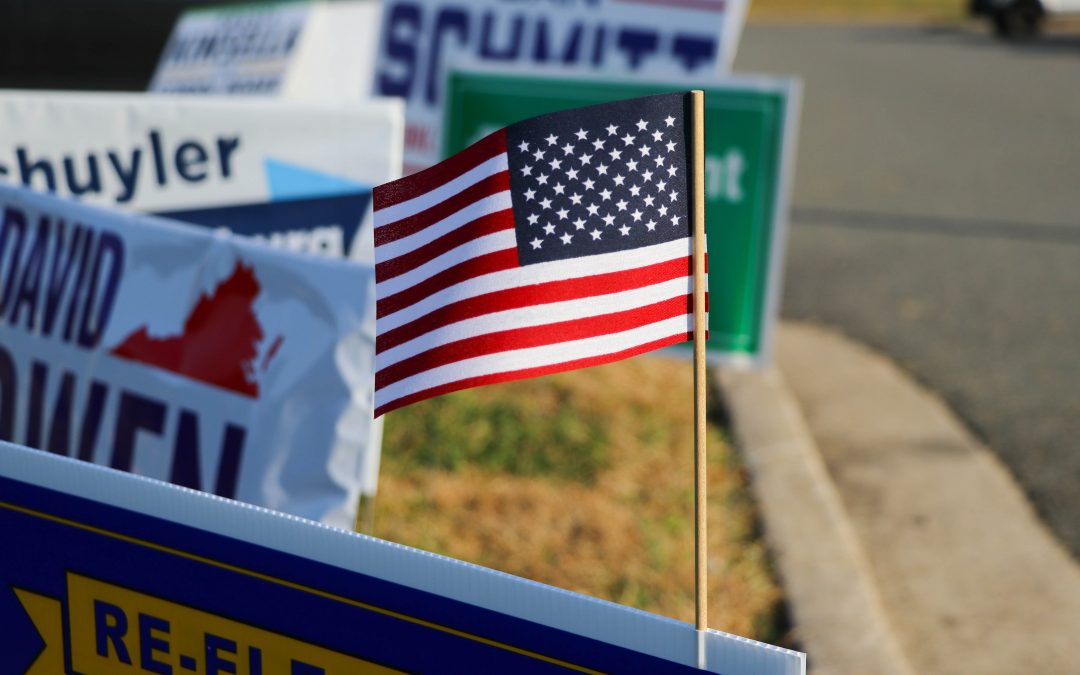VIRGINIA – Richard Walker grew up in a family where voting was mandatory because of the long history of Black voter suppression. He always valued his right to vote.
But after Walker completed his prison sentence in 2005, he lost his suffrage, a consequence of legislation he only learned about then.
“Of course, I was angry. I’m like, ‘who the heck is the Commonwealth of Virginia to deny me my constitutional right to vote?’” Walker said. He didn’t regain that privilege until about seven years later.
As voters recently went to the polls in state elections, people who lost their voting rights after felony convictions had to find other ways to get involved.
Virginia, Kentucky, Florida, Iowa and Tennessee have “the most restrictive voting bans for people with felony convictions in the country,” according to The Sentencing Project. Virginia and Kentucky, in particular, had some of the most watched races in the country in the most recent elections because of their significance for abortion rights.
Disenfranchised voters participated in both state elections without casting a ballot, whether it meant speaking with lawmakers, hosting voter drives or suing the government entities restricting their voting rights. Many in Virginia and Kentucky relied on these methods of civic engagement because their governors have the authority to grant or deny restored voting rights, which advocates described as “draconian.”
Walker’s organization, Bridging the Gap in Virginia, is a plaintiff in one of at least three lawsuits that challenge Virginia’s current process for voter restoration for people with felonies. He founded the organization in 2009, driven by the loss of his rights.
Separate Virginia lawsuits arose earlier this year and directly called out Republican Gov. Glenn Youngkin after he established a voter restoration system where he has the sole authority. His predecessor, Democratic Gov. Ralph Northam automatically reinstated rights for felons once they completed their sentences.
One lawsuit was filed in April against the governor’s sole authority in determining voter restoration. One of the petitioners, the Fair Elections Center, joined a lawsuit in Kentucky four years prior for a similar reason.
“This lawsuit, there’s so much hope pinned on it for me, and people like me,” said Bonifacio Aleman, a social worker and plaintiff in the Kentucky lawsuit who had his voting rights revoked.
Another Virginia lawsuit, filed in June, challenged a provision of the state constitution. The suit claimed the state currently violates the terms of Virginia’s readmission to Congress after the Civil War. The Readmission Act prohibited former Confederate states from including any provision in their constitutions that disenfranchised citizens aside from people convicted of the common law felonies at the time. The lawsuit said the state expanded its Constitution to include a broader set of crimes.
Under Youngkin, Virginia became the only state in the country with the governor as the sole proprietor for voter restoration. While Kentucky Gov. Andy Beshear also has the power to grant or deny applications, the state Department of Corrections reviews them before sending them to his office.
Jon Sherman, litigation director at the Fair Elections Center, said before Youngkin stepped in, Virginia was “one of the success stories in the country,” when it came to a voting rights restoration system. Sherman’s organization filed the April voting renewal lawsuit.
“Governor Younkin took office and, it’s unclear exactly when it happened, but sometime last year, threw all of that out the window and turned the clock back a decade in Virginia, and now Virginia, once again has a purely arbitrary voting rights restoration system,” Sherman said.
In response to Fair Election Center’s lawsuit, Youngkin’s legal representation said the lawsuit should be dismissed because the claims lack merit, according to documents filed in the court.
Aleman works for a grassroots organization, Kentuckians for the Commonwealth, which worked to reelect Beshear, a Democrat. Aleman remarked that he is in an interesting position because he’s fighting against the state of Kentucky in the lawsuit.
“The governor’s office is fighting this case and, at the same time, my job is endorsing the current governor in his bid for reelection. So emotionally, [it] makes for some trying times,” he said.
The Beshear administration said it could not respond to Medill News Service’s request by the time of publication.
“What is different from both Democrat and Republican administrations with this administration is there’s no criteria that we are able to get them to state. They have been very cloak-and-dagger about what the actual criteria is,” said ACLU of Virginia Policy and Advocacy Strategist Shawn Weneta. The ACLU of Virginia is one of the organizations that filed the June lawsuit.
The NAACP also criticized Youngkin’s “arbitrary” process for voter restoration and filed a lawsuit last month. The organization said his administration failed to turn over public records to explain how it decides whether to restore the voting rights of convicted felons who have completed their sentences.
In a conversation with 13News Now, Youngkin said his administration is “fully complying with the law.”
“I believe every Virginian that has the right to vote should be voting, and that’s the job that we’re doing,” he said in the interview.
The Youngkin administration had not responded to Medill News Service by the time of publication.
Weneta said that the Youngkin administration and the Secretary of the Commonwealth advocates failed to provide a direct, concise answer to advocates, members of the General Assembly and individual voters who asked about the criteria for applying to regain the right to vote.
In addition to the confusion surrounding requirements for restoration, Weneta said many people are turned off by the application process itself.
“There are thousands of people that are waiting to have their applications processed, and that’s just people that apply. There’s other many thousands of people that have gotten out [of prison] and simply just haven’t applied or don’t want to deal with the hassle of it,” Weneta said.
Weneta was a disenfranchised voter until Gov. Ralph Northam’s administration in 2021. He said he spent 15 years in prison, watching politicians make decisions that impacted constituents, many of whom were unenthused about the electoral process.
“Until you’ve lost your rights, until you don’t have something anymore, you don’t value it as much,” he said.
The Kentucky case began with Deric Lostutter, a paralegal who lost his voting rights after serving time in federal prison for his role as a hacker in a group of digital activists, Anonymous. When he searched for people who lost their rights like him, he found that many of them were convicted for what he categorized as, “poor people crimes,” like shoplifting at least $500 worth of merchandise.
“Chances of meeting a felon are high and you wouldn’t even know it. We’re just normal people. So I would say it’s normal just to walk around and meet regular people,” Lostutter said. “We’re people just like everybody else, we deserve our rights just like everybody else.”
While some other plaintiffs in the Kentucky case had their voting rights restored, Lostutter had no intention to apply. He refused to participate in the current system. Instead, he decided to speak at city hall, petition local representatives and continue fighting in the case.
While Walker was denied voting rights, he found other ways to honor his family’s dedication to civic engagement.
“I was transporting people to the polls, even though I didn’t have the right to vote,” Walker said.
For him, the issue goes beyond Youngkin’s administration.
“I’m angry with this state. I’m angry with every administration that’s been through this state that has not repealed this legislation that denies individuals the right to vote,” Walker said.


